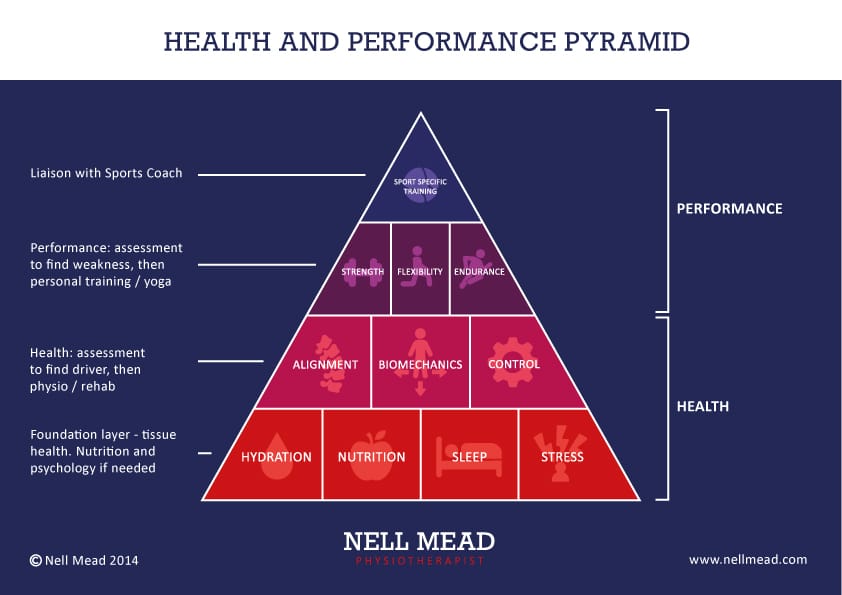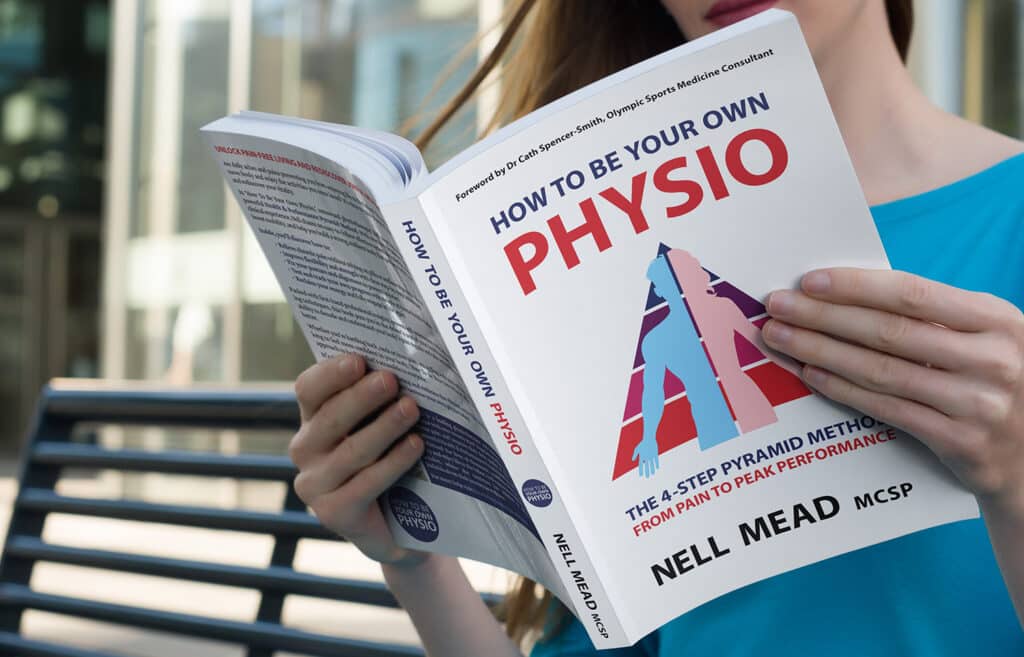So… we’ve introduced the Health & Performance Pyramid (which underpins everything we do ) and worked our way through the Foundation Layer (sleep, stress, hydration and nutrition – vital for optimal tissue health), and then through physiotherapy, exercise rehabilitation and balance therapy. Once you’ve finished with this, you should be out of pain – but how do you stay there, and build up your resilience so that you don’t get injured again? This is where the Performance Layer comes in.

One of my favourite ways of explaining how the body makes its adaptations is “your body responds to what you ask it to do the most”. This can be positive or negative depending on what you spend your time doing and how you do it. It can also occur in both a mental and physical capacity.
- For example, if you take up strength training, your muscles won’t immediately get bigger (sadly, the Popeye effect is not a real thing), but after repeated stimulus of having to lift heavy weights, it will create adaptations to make the muscles bigger and stronger to help you perform this more easily and efficiently.
- If you decide to spend your time mostly sitting down, your body will make it easier for you to be in a seated position by switching off muscles that hold you upright, and will allow you to slouch more easily. If you also spend hours staring forward at a screen, it will allow your head to move forward further to see the screen better.
- If your body repeatedly experiences stressful stimulus, it will adapt to sense more stress, more easily, from smaller and smaller inputs, so that you end up feeling on full alert to respond to this even when in actuality, it is not necessary or appropriate.
Your body thinks it is being helpful by making these adaptations as it likes ease, predictability, and familiarity – it won’t discriminate between positive and negative changes, it will just change.
In my physiotherapy practice, we use the term ‘maintenance’ to describe what you should be doing to counter all the negative inputs that your body receives, to help facilitate the more positive inputs and therefore positive outputs it gives back to you.
This is different from physio or rehab where there is more of a set progression you are looking to achieve from a specific starting point (of being injured or in pain to being pain-free and fit). Maintenance is more of an ongoing process of trying to achieve a balance between stresses and eases, whether that is physical, environmental, emotional or chemical! Don’t forget – a certain amount of stress can be beneficial to help strengthen your body and mind, but it is when it is not followed by rest, recovery, and down-time that it becomes a problem.
Your body responds to what you ask it to do the most.
So, if you vary what you do, how you think, what you eat, it becomes better at simply adapting correctly to the environment it is in at the time, and then moulding helpfully into the next environment or situation it’s faced with.
While my goal with physiotherapy is usually to get you as pain-free and as functional as possible, and to start you back on the route to fitness, if you want to become really resilient and injury-proof, I’ll usually introduce you to one or more of my network of specialists in movement training.
The third layer of the Health & Performance Pyramid is the Performance layer, which comprises Strength, Flexibility and Endurance; and these days I often add Coordination to the list.
Depending on the areas in which you’re weakest, or the areas in which you require the greatest facility (for example, if you’re a marathon runner, the chances are that your main focus will be on endurance), I’ll recommend that you work with different specialists.
Movement experts I often work with include:
So – if you’re a serial physio attender whose body could do with building bit more resilience, or if you’re up for reducing your overall injury risk – come and see me for a physio assessment, and together we’ll work out what you need to focus on and who you need to work with, to help you move up the pyramid and away from physiotherapy.







